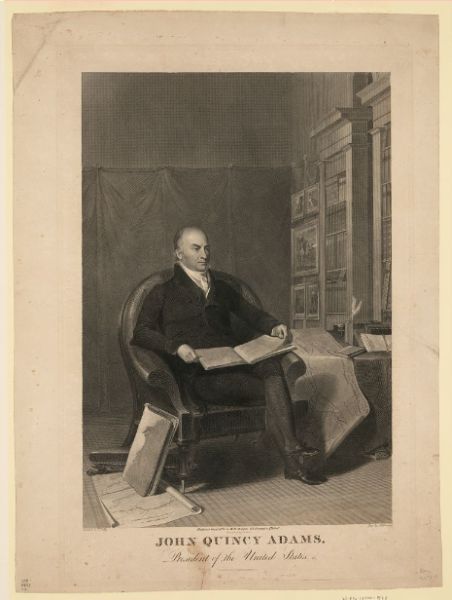The 1824 election was one of the most controversial in U.S. history. At that time, the Federalist Party had disappeared. The Democratic-Republicans were the only major political party left. Four Democratic-Republicans ran for president unopposed by another party. The candidates were Andrew Jackson, John Quincy Adams, William Crawford, and Henry Clay. Andrew Jackson got more popular and electoral votes than any other candidate. However, he did not secure a majority (more than fifty percent). According to the Constitution, the choice for president would be sent to the House of Representatives, where Henry Clay was Speaker. Clay used his influence to support Adams, who became president. Soon after, Adams appointed Clay Secretary of State, a position many viewed as a stepping-stone to the presidency. Jackson’s supporters were outraged and accused the two men of making a “corrupt bargain.”
Newspapers quickly spread this accusation. Many Americans believed the story. It showed up in articles and political cartoons. Jackson’s followers said the people’s choice had been ignored. The term “corrupt bargain” turned into a strong slogan that they repeated often.
In Washington, leaders argued over what had happened. Adams's supporters said the House acted by the Constitution, so it was fair. Jackson’s supporters disagreed. They said Adams and Clay had cheated and worked hard to block Adams’s plans in Congress. As a result, Adams had little success as president.

The fight also tore apart the old Democratic-Republican Party. Jackson’s followers created the Democratic Party. This party claimed to represent the people. Adams's supporters formed the National Republicans. They wanted a stronger central government.
The reactions to the election did not go away. Instead, they led to changes in the political system and set the stage for Andrew Jackson to run again in 1828, with even more support.
